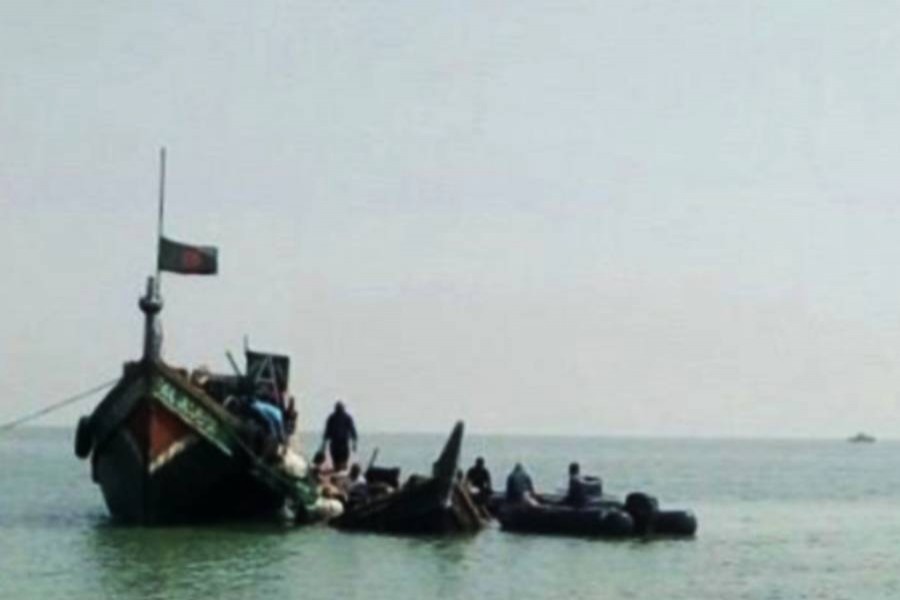That trawlers with fishermen either sink or go missing in the Bay of Bengal is not quite uncommon. But hardly ever did so many trawlers in the recent past sink or go missing as they did in the turbulent sea on Friday night. Forty-one trawlers with 400 fishermen, which sailed from Patharghata, Barguna alone, went missing. Then five, four and 12 trawlers with 72, 60 and more than a hundred from Kalapara, Bhola and Galachipa respectively were missing. A total of 99 fishermen floating in the water or on trawlers with engines gone out of order were rescued by the coast guards. Besides, a patrol team of the forest department of the Sunderbans rescued 65 fishermen who came floating close to the forest. By Sunday, seven bodies of missing fishermen were also recovered.
The number of missing trawlers and fishermen on board speak volumes for the tragedy on the one hand and on the other, the utter failure of the system of early warning of the violent storm that swept the fishing zone following the low in the Bay of Bengal. It is unbelievable that in a country that has put in place quite an effective early warning system of alerting about rough weather or cyclones in the sea should let the fishermen down. Had they been warned of the turbulent sea beforehand and asked to stay close to the coast, this tragedy could have been avoided. Now near and dear ones of the missing fishermen --- one of the utterly neglected and exploited communities in this country, are lamenting. Many families are sure to lose the only earning member and those are simply undone by this tragedy. There is a need for thorough investigations to find out why the weather forecasting and early warning system failed to caution the fishermen. There is hardly any chance of defying any such warning on the part of fishermen.
It is indeed deplorable to see that today's fishermen in Bangladesh find themselves at the mercy of unpredictable sea like the protagonists of celebrated Irish dramatist John Millington Synge's play, Riders to the Sea. No doubt, the occupation of fishing in the sea is risky but there is no point it should be as fatal as it proved on this occasion. The authorities concerned completely failed to take help from sophisticated weather reading devices. This is unpardonable. What is galling is that no one in authority even expressed regret or sympathy for the bereaved families let alone taking to task those who failed in their responsibility.
The fishing community finds itself on the fringe of mainstream society. They serve the owner of fishing boats, nets and other equipment as bonded labour. Even when the catch is huge, they hardly share the proportionate dividends. Their miserable life, thus, becomes vulnerable. The trawlers that go to the sea for fishing are primitive, so they are unlikely to withstand any violent weather in the sea. There is a need for procuring modern fishing vessels including those capable of fishing in the deep sea. This calls for investment and the government can arrange for public-private collaboration in order to gradually replace trawlers with modern fishing vessels.


